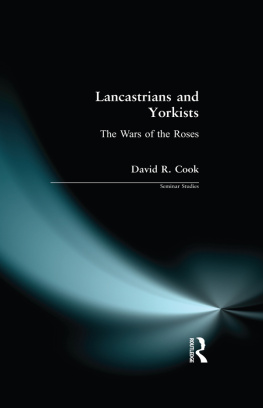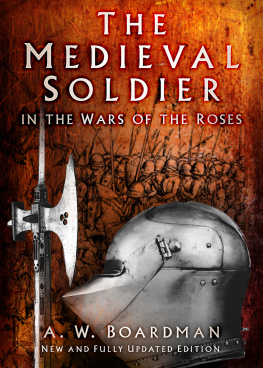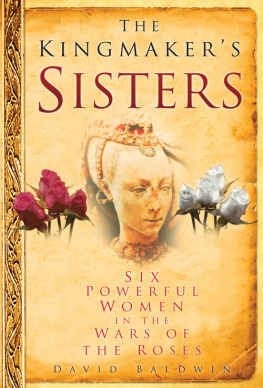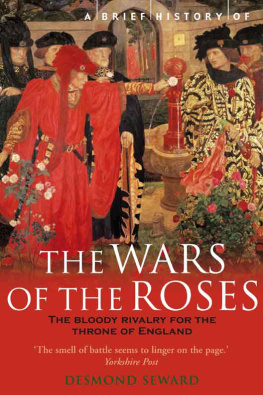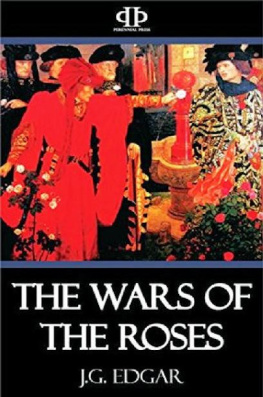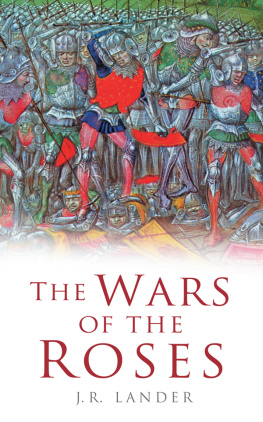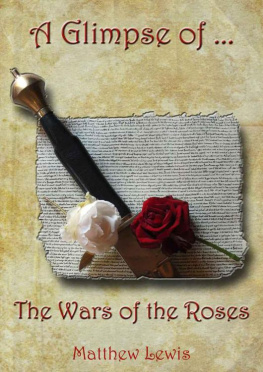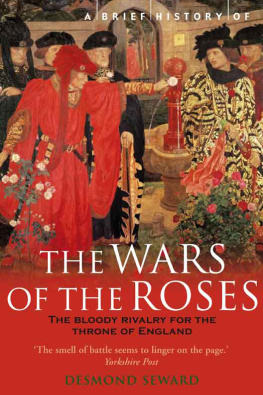First published 1984 by Pearson Education Limited
Published 2014 by Routledge
2 Park Square, Milton Park, Abingdon, Oxon OX14 4RN
711 Third Avenue, New York, NY 10017, USA
Routledge is an imprint of the Taylor & Francis Group, an informa business
Copyright 1984, Taylor & Francis.
All rights reserved. No part of this book may be reprinted or reproduced or utilised in any form or by any electronic, mechanical, or other means, now known or hereafter invented, including photocopying and recording, or in any information storage or retrieval system, without permission in writing from the publishers.
Notices
Knowledge and best practice in this field are constantly changing. As new research and experience broaden our understanding, changes in research methods, professional practices, or medical treatment may become necessary.
Practitioners and researchers must always rely on their own experience and knowledge in evaluating and using any information, methods, compounds, or experiments described herein. In using such information or methods they should be mindful of their own safety and the safety of others, including parties for whom they have a professional responsibility.
To the fullest extent of the law, neither the Publisher nor the authors, contributors, or editors, assume any liability for any injury and/or damage to persons or property as a matter of products liability, negligence or otherwise, or from any use or operation of any methods, products, instructions, or ideas contained in the material herein.
ISBN 13: 978-0-582-35384-8 (pbk)
British Library Cataloguing in Publication Data
Cook, David R.
Lancastrians and Yorkists. (Seminar studies
in history)
1. Great Britain History Wars of the Roses,
14551485
I. Title II. Series
942.04 DA250
ISBN 0-582-35384-X
Library of Congress Cataloging in Publication Data
Cook, David R.
Lancastrians and Yorkists.
(Seminar studies in history)
Bibliography: p.
Includes index.
1. Great Britain History Wars of the Roses, 14551485. I. Title.
II. Series.
DA250.C67 1983 942.04 839387
ISBN 0-582-35384-X
Set in 10/11pt. Baskerville, Linotron 202
Seminar Studies in History
Founding Editor: Patrick Richardson
The Seminar Studies series was conceived by Patrick Richardson, whose experience of teaching history persuaded him of the need for something more substantial than a textbook chapter but less formidable than the specialised full-length academic work. He was also convinced that such studies, although limited in length, should provide an up-to-date and authoritative introduction to the topic under discussion as well as a selection of relevant documents and a comprehensive bibliography.
Patrick Richardson died in 1979, but by that time the Seminar Studies series was firmly established, and it continues to fulfil the role he intended for it. This book, like others in the series, is therefore a living tribute to a gifted and original teacher.
Note on the System of References:
A bold number in round brackets (5) in the text refers the reader to the corresponding entry in the Bibliography section at the end of the book. A bold number in square brackets, preceded by doc [] refers the reader to the corresponding item in the section of Documents, which follows the main text.
Part One:
The Background
Nor, indeed, is evidence to be found in the chronicles or annals of kings of which our long history makes mention, that any king of England ever achieved so much in so short a time and returned home with so great and so glorious a triumph.
Gesta Henrici Quinti (5), pp. 100101
The reign of Henry V (14131422) witnessed a level of achievement beyond all contemporary expectations. After his accession, Henry immediately set about reviving the military glories of his great-grandfather, Edward III. He was fortunate in the timing of his claim to the French throne as France was in turmoil due to the insanity of Charles VI. Henry invaded France in 1415. The campaign began with the successful siege of Harfleur and culminated in the great English victory at Agincourt (St Crispins Day, 25 October 1415). It made King Henry a national hero.
However, the strain on the countrys military and financial resources was already apparent. Henry was unable to follow up his triumphs of 1415 for two years. He then systematically conquered Lower Normandy. The campaign of 14171419 ended in the successful six-month siege of Rouen. Henrys triumph in France, which led to the capture of Paris, was sealed by the murder of Duke John the Fearless of Burgundy by the supporters of the Dauphin on the bridge at Montereau in September 1419. The Burgundians now became the firm allies of the English and the new Duke, Philip the Good, negotiated the Treaty of Troyes (May 1420) with Henry V. The English King was made heir to the French throne and was to marry the daughter of Charles VI. The Dauphin, now beleaguered and penniless in Bourges, was disinherited. It seemed as if all France lay at Henrys feet, but he had less than three years to live, and Troyes was not to be the final triumph, only a step in that direction.
Henry has been described as the greatest man that ever ruled England, but in the context of the fifteenth century it is very difficult not to view him as an able but shortsighted adventurer (, p. 133). Even if he had lived, it is doubtful whether Henry could ever have firmly established the Lancastrian dynasty in France. The spirit of resistance, albeit somewhat dimmed, still shone in many areas of France. In England, on the contrary, there were definite signs of war-weariness. Henry was hard pressed for both men and money in the last years of his reign. Parliament had readily granted taxation in a first flush of enthusiasm for the war, but by the early 1420s the Commons were growing increasingly reluctant. Loans postponed the inevitable crisis, but as debts mounted so creditors became ever more wary.
Yet the Lancastrian empire survived the death of its creator in August 1422. On his death-bed, Henry designated his very able brother John, Duke of Bedford, as Regent in France. Bedford was able to maintain the vital Burgundian alliance and make steady military progress. The French were defeated at Cravant in July 1423 and again at Verneuil in August 1424. By the end of 1425 Maine and parts of Anjou were in English hands. Three years later the Earl of Salisbury, against the advice of Bedford, decided to seize a bridge head over the Loire and threaten the Dauphins power in southern France. He began the siege of Orleans in 1428. However, the English had dangerously stretched their limited resources. Despite an intensive propaganda campaign in favour of the war, fewer Englishmen wished to serve in France, and Parliament went on believing the military effort should pay for itself. It was these considerations which undoubtedly influenced Bedford to advise against the siege of Orleans.
The appearance of Joan of Arc in the spring of 1429 changed the complexion of the war. In two years she relieved Orleans, inspired the French soldiers to defeat the English at Patay (May 1429) and crowned Charles VII at Rheims (July 1429), before being burnt at Rouen in May 1431. Bedford laboured tirelessly to maintain the deteriorating military position but his authority in France was increasingly being questioned by his younger brother, Humphrey, Duke of Gloucester, and the Council in England. He became progressively more disillusioned, particularly after the death of his wife Anne. The decline in the war effort convinced many on the Council, but notably Cardinal Beaufort, of the need for a peace settlement. The result was the peace conference at Arras in autumn 1435. However, the English delegation refused to discuss Henry Vis claim to the French crown and walked out. This was a disastrous tactic as it left the way open for Philip the Good to withdraw from the English alliance and come to an agreement with Charles VII []. With the collapse of the Anglo-Burgundian alliance, the English position in France was no longer viable. To make matters worse Bedford died shortly after the ill-fated conference at Arras.

